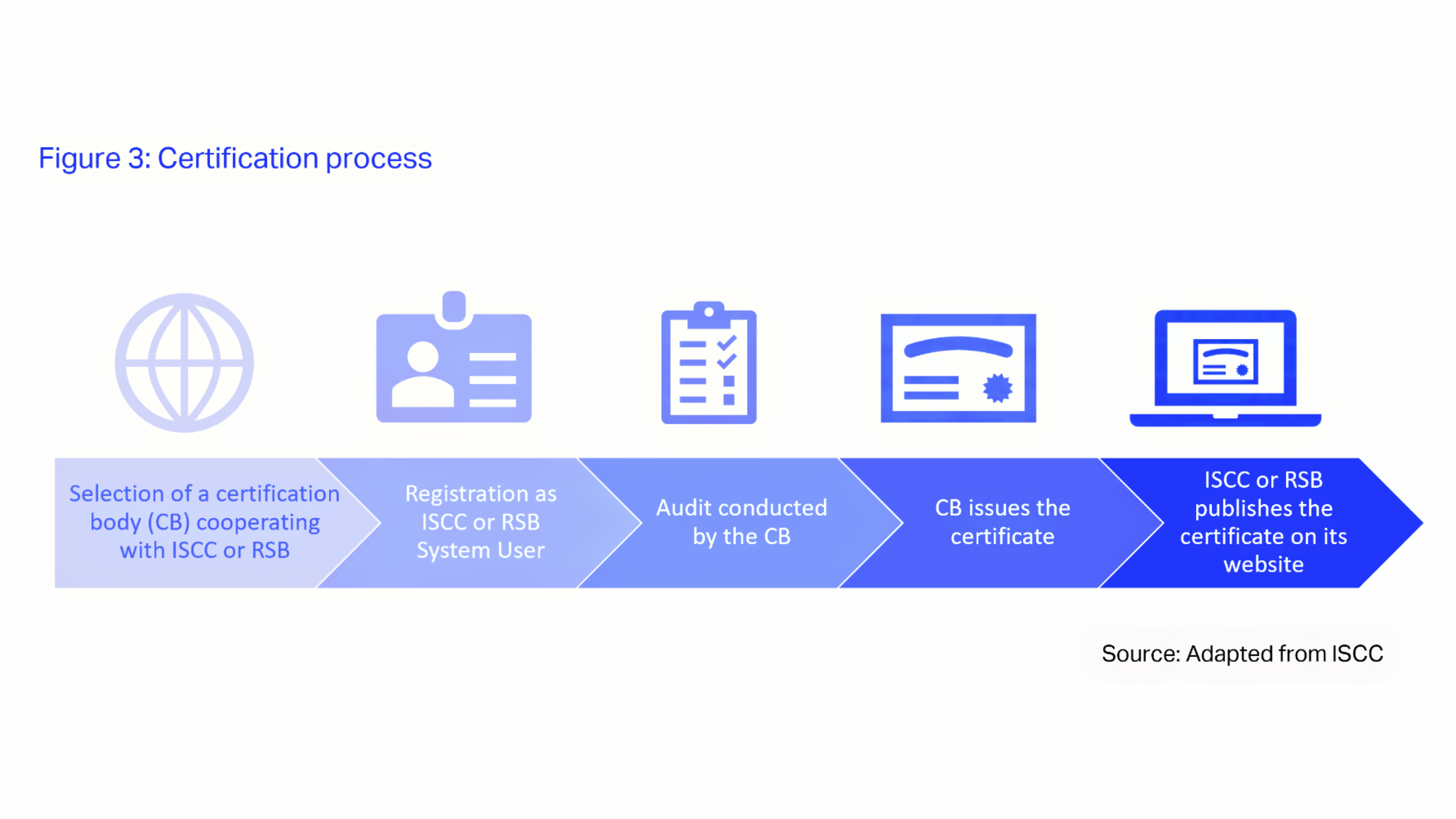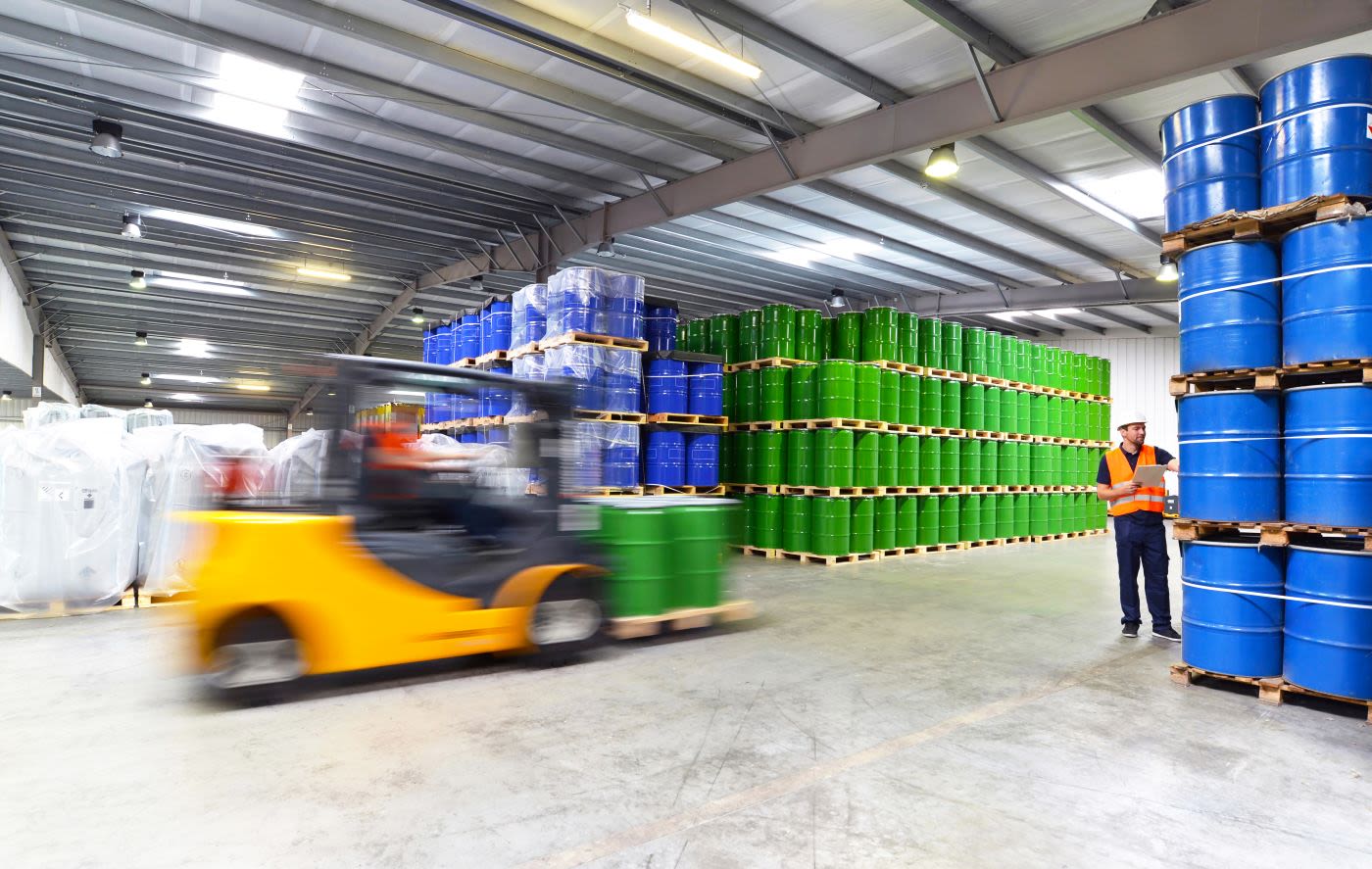5. How does an entity becomes certified?
Registration and certification for ISCC and RSB schemes generally involve a 5-step process as depicted in the flow diagram below:

An economic operator seeking SAF sustainability certification must first identify which scheme or schemes[1] it would like to be certified for. To reduce audit efforts and costs, ISCC and RSB allow certification for their different SAF certification schemes to be carried out concurrently, i.e., through a combined audit. After a successful combined audit, the economic operator will be granted certification for each scheme.
Independent third-party Certification Bodies[2] (CB) that are recognized by ISCC and RSB carry out the audits. The economic operator will choose their Certification Body from a list of recognized CBs provided by ISCC (here) or RSB (here).
[1] In the case of ISCC, the schemes are ISCC CORSIA, ISCC EU, and ISCC PLUS. In the case of RSB, the schemes are RSB ICAO CORSIA, RSB EU RED, and RSB Global.
[2] A Certification Body for SAF is an independent organization or entity responsible for conducting assessments, audits, and evaluations of SAF production facilities, feedstock suppliers, and supply chains to verify compliance with specific sustainability standards and criteria.

Preparation for an audit
To prepare for an audit by a Certification Body, an economic operator should refer to the audit procedures published by ISCC (here) or RSB (here). Certification bodies use these audit procedures to assess if an economic operator is complying with the requirements of each scheme.
Although there are differences in the preparations needed for each scheme, there are also significant overlaps in elements and requirements such as the management system (which can be the same for the different schemes), the traceability system (as long as different product batches and their compliance to the individual schemes are clearly tracked), and the data required for emissions calculations.
In addition, the audit procedures can be used by economic operators to conduct their own internal audits, assessments and for internal training. Both the RSB and ISCC can provide an economic operator with an audit checklist to help it prepare to meet the requirements of its chosen scheme.

Process for certification
The process for obtaining certification is similar for both RSB and ISCC:
▪ The economic operator must register or apply to become an RSB Operator or ISCC System User on their respective websites.
▪ RSB Only: there will be a 2-week public comment period and due diligence process on the applicant.
▪ Once accepted, the economic operator will prepare for the audit by conducting a GHG emissions calculation, implementing the certification requirements, creating a chain of custody system, ensuring that sustainability criteria are complied with etc.
▪ The Certification Body conducts the audit at the economic operator's premises.
▪ If any major non-conformities are identified, 90 days will be provided to address these non-conformities.
▪ Once the non-conformities (if any) are addressed, the audit is successfully completed, and the Certification Body issues the certificate to the economic operator. The certificate will have a unique Certificate ID and appear on the RSB or ISCC website as proof of compliance.
▪ The validity of the conformity status is dependent on the sustainability certification scheme:
‒ ISCC - the certificate is generally valid for 12 months. After this period, the economic operator must undergo recertification to ensure continued compliance with the ISCC requirements.
‒ RSB - the certificate has a validity period based on the risk class of the operator (2, 3 or 5 years). An annual surveillance audit will be conducted to maintain the certificate in the intervening years.
